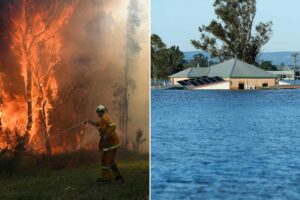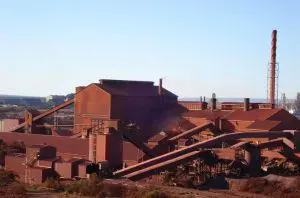There is an important public health message for power producers and governments. It is no longer appropriate to harm people by burning air polluting fossil fuels when there are healthy alternatives.
The Port Augusta power stations, the most polluting in Australia are due for renewal and in making a decision on replacement all should be aware of the health impacts on Port Augusta over many years. The chimney stack is approximately 3km from the edge of the town of 15,000 people.
The community led by dedicated mayor Joy Baluch has complained long and hard about illnesses which they see related to pollution. Recent independent analysis of health data for the period 1998-2007 showed the incidence of lung cancer to be 1.45 times and for 2007-2009 twice the expected number.
The community was angered to be informed by government that they were smoking too much and that air quality data measured by the operator Alinta was within EPA standards.
A new analysis of the data by experts from Doctors for the Environment Australia indicates that the level of smoking is insufficient to account for the increase in lung cancer and that significant pollution is occurring.
Research from many countries has shown that communities in the vicinity of coal-fired stations suffer a range of heart and lung diseases and increased mortality. It has always seemed incongruous that Port Augusta had escaped these health impacts which arise from a cocktail of noxious gases and particulates; these are inhaled, absorbed through the lungs and harm many organs.
Although other medical studies in Port Augusta have been limited for unknown reasons, there is data dating from 1993 that the incidence of childhood asthma symptoms was greatly increased.
Port Augusta is an important test case for the use of renewable energy in Australia. The health costs of coal burning amount to billions of dollars in Australia, and these externalities are not included in the cost of electricity. They are carried by health services and individual suffering.
Over the years Port Augusta has produced 30 per cent of South Australia’s energy and has been vital to the energy security of the state. There were no alternatives. The situation has now changed; there are alternatives for clean energy which provide energy security. Under these circumstances it is medically unethical to continue pollution.
Decision makers should be aware that gas still produces particulate pollution; deaths and illness are much less but still occur. Medical research shows increasing concern over the harm from particulates produced by fossil fuel combustion.
There are additional concerns. The mining of gas carries many public health risks as detailed in a comprehensive report to the Senate.
The green house emissions profile may not be much better than that of coal and the IEA states that gas, as a replacement fuel, will not allow humanity to curtail global temperature rise.
We all live by, and most accept, the economic model of Milton Friedman of the Chicago school. A company is a legal entity with a responsibility to shareholders. Society subsidises many companies by not charging them for externalities. Which company is going to offer to pay?
On the basis of cheaper construction costs, Alinta will build a gas-fired power station and the community will suffer and pay the health costs for another 30 years. So when governments say “that’s the company’s decision, it is a commercial decision,” then we have to ask why we have government.
As always in these situations, there is a community dilemma, in that the power stations and mining of brown coal are a leading form of employment in the town. Unemployment and displacement are health hazards. Comprehensive assessment is needed involving current health, risk assessment, employment, future technological opportunities; these decisions affecting people’s lives and the national interest should not be left to accountants in company boardrooms.
It would not be possible to find a more appropriate solution to the health and employment issues in Port Augusta than solar thermal with storage. Beyond Zero Emissions (BZE) had has made a comprehensive study of this technology for Port Augusta Health impacts and green house emissions will be eliminated and the existing 250 jobs will be secured; Australia would move into the 21st century with its energy policy.
Doctors for the Environment Australia (DEA) believes that the patient, in this case the community, should always get the best preventative health policy. DEA will be presenting a seminar on these issues to the Parliament of South Australia on May 3.
David Shearman E/Professor of Medicine is Hon Secretary of Doctors for the Environment Australia an independent public health organisation of medical doctors www.dea.org.au








